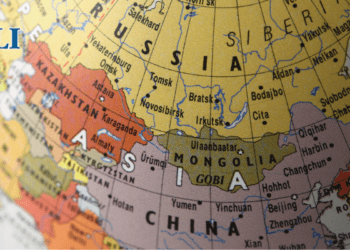By David Collins, September 27, 2023
A draft of Canada’s Digital Services Tax (DST) Act was released last month. The act, similar to legislation that has been proposed in the UK and France, was designed to address the widespread perception that multinational tech companies do not pay their “fair share” of domestic taxes. With Canada signaling its intention to regulate digital services unilaterally, the act will likely come into force sometime in 2024.
The DST – Main Features
The essence of the proposed DST Act is a 3% tax on Canadian-sourced digital services revenue earned by large domestic and foreign companies. The legislation would apply to multiple revenue streams, including revenue generally arising from online marketplace services; online targeted advertising services; social media services; and the sale or licensing of user data obtained from an online marketplace, social media platforms or online search engines.
Because it was created to combat the tax avoidance schemes of the big tech companies operating online while registered in low tax jurisdictions, Canada’s DST Act will apply only to businesses that meet high revenue thresholds. Affected companies must earn global revenue (from all sources) of €750 million (CAD$1 billion) or more per year, as well as Canadian digital services revenue of more than CAD$20 million annually. The 3% tax would only apply to the portion of revenue that exceeds the CAD$20 million threshold (i.e.: $3 million of $23 million in revenue would be taxable). The tax would be prorated among company group members.
While, on its face, a laudable effort to rein in a fast-growing digital services sector, the DST is bad news for innovators and consumers alike. Like most taxes imposed on businesses, there is a strong likelihood that the DST will simply be passed onto consumers, increasing prices and diminishing purchasing power commensurately. It will also chill investment and employment, acting as a drag on digital economic activity writ large.
In addition to being bad economic policy, the DST also places Canada in contravention of its international commitments, specifically the law of the World Trade Organization (WTO) and the United States Mexico Canada Agreement (USMCA), among other Free Trade Agreements (FTAs). The US strongly opposes DSTs, which it believes unfairly target American businesses. As by far the largest importer of Canadian goods and services, the US could easily make an example out of Canada to deter other countries from passing their own DSTs (i.e.: through retaliatory trade measures).
WTO Implications
Although WTO rules do not impose obligations regarding the imposition or collection of tax, there are a few facets of WTO law of which the DST Act could run afoul. First is the WTO-wide moratorium on the imposition of customs duties on electronic transmissions, last extended on a temporary basis in 2022. It is not clear whether the current moratorium is enforceable under the WTO’s dispute settlement process, as it is often thought of as a ‘political’ commitment rather than a legally binding one. Still, there is a strong claim that the Canadian DST is not in keeping with the spirit of the moratorium, which was designed to promote the free flow of data for the purposes of commercial activity.
More importantly, since Canada’s new DST Act will affect trade in internet advertising and digital intermediation services, it falls within the scope of the WTO’s services agreement, the General Agreement on Trade in Service (GATS). GATS prohibits discrimination between ‘like’ services or services suppliers, either against foreign companies or between foreign companies from different countries (e.g.: giving a Brazilian company favourable treatment compared to a Chinese one). In the case of the DST Act, the discrimination would probably be against American companies in favour of their Canadian or world-wide competitors.
WTO case law offers a narrow understanding of ‘likeness’, focused on the competitive relationship between the services provided and their suppliers. It is difficult to anticipate whether digital services would be viewed as ‘like’ their traditional equivalents from Canada or elsewhere if the issue were brought before a WTO panel. One could argue that digital advertising not ‘like’ classic print advertising, for a number of reasons (e.g.: digital ads may serve an additional market research function by collecting data from the users who click on them). On the other hand, digital intermediation services, such as those provided by Uber and Airbnb could be viewed as ‘like’ taxi and hotel services because they are in competition with each other. Competition between digital services providers of the same kinds of services but at different scales (e.g.: Netflix vs. CBC Gem) would be significantly easier to demonstrate.
Whether Canada’s DST violates the non-discrimination rules of the GATS depends on the commitments that the WTO Member imposing it has made in its schedule of specific commitments. Canada made very broad commitments in relation to computer services and telecommunications, the two sectors most affected by the DST. Nevertheless, in assessing whether a WTO Member has made a specific commitment under GATS, there is still much disagreement over the status of various digital services, such as search engines, internet advertising, streaming and cloud computing. (These services, by and large, did not exist when the commitments were scheduled in the mid-1990s).
Based on WTO case law, it seems clear that GATS schedules extend to services that were not technically feasible or commercially available at the time the commitments were made. Even at the time, the interpretation of WTO agreements was arguably intended to be flexible in enabling adaptation to new technologies. It should also be noted that Canada scheduled very limited exceptions under GATS in relation to tax, mostly covering expenses related to research and development (R&D) and land and natural resources, none of which are relevant to the DST. Consequently, a Canadian DST imposed on the cross-border supply of internet advertising or digital intermediation services, but not on the supply of similar services domestically, could be viewed as a discriminatory tax on imported electronic transmissions.
Canada’s DST Act does not formally distinguish between domestic and foreign services and service suppliers. The design of the DST could be problematic here because of its high thresholds, which appear to target the US tech giants, as well as the types of services covered, effectively excluding domestic suppliers. There are very few, if any, Canadian companies which will be obliged to pay the DST. In this regard, it would not be a defence for Canada to claim that the DST Act was imposed to address the under-taxation of digital platforms. Since the DST only applies to firms above a certain size, the tax will, in essence, be discriminatory if the only firms that are subject to the tax are foreign firms, almost all of which are American.
GATS contains general exceptions which enable WTO Members to violate its rules under certain circumstances. But GATS’ general exceptions are not likely to apply to the Canadian DST. The most plausible exception, for direct taxes and designed to address tax evasion, is not a good fit because DSTs are not income taxes and, in fact, are more aptly characterized as indirect taxes (meaning ones charged on services rather than on income). DSTs are also not ‘necessary’ to secure compliance with income tax – “necessity” having a very high threshold under international law. It is also noteworthy that DSTs are not covered by existing double taxation agreements, taking them outside the scope of another exception to GATS rules.
USMCA Implications
Canada’s economic relationship with the US is also governed by the USMCA, which contains principles that are very similar to those of the GATS. Canada’s DST could, as such, also yield a claim by the US, based on Canada’s breach of the USMCA’s services chapter. The non-discrimination rule in the USMCA has a more open-ended prohibition of less favourable treatment accorded to other services and service suppliers in ‘like circumstances.’ Interestingly though, whether treatment is accorded in ‘like circumstances’ under USMCA depends on the totality of the circumstances, including whether the relevant treatment distinguishes between services or service suppliers on the basis of legitimate public welfare objectives. It is arguable that the equitable and effective collection of taxes from digital service suppliers constitutes such a “legitimate” public welfare objective. But again, the design of the DST, which appears to single out large American companies, undermines this claim. Some might assert that large tech firms put greater strain on public infrastructure, e.g. electricity and telecommunication networks, but this claim would be difficult to quantify and would likely necessitate an assessment of their corresponding contributions to the economy. It is doubtful that a USMCA arbitration panel would grant validity to such a claim.
Having been drafted within the past decade, the USMCA contains more up-to-date terminology than corresponding WTO provisions. Notably, the text of the agreement prohibits parties from according less favourable treatment to digital products created, produced, published, contracted for, commissioned or first made available on commercial terms in the territory of another party; or to digital products of which the author, performer, producer, developer, or owner is a person of another party, than it accords to other like digital products. This broad language would seem to cover products created within USMCA territory but supplied from a non-USMCA country that is a low tax jurisdiction.
The USMCA’s innovative digital trade chapter contains a wide prohibition of measures that prohibit or restrict the cross-border transfer of information unless, again, necessary to achieve a legitimate public policy objective. As noted earlier, necessity is a high bar under international law, and it is difficult to see how the DST could meet it. Again, this would be a tough argument for Canada to make at an arbitration panel given the way the DST is framed.
The USMCA further bans data localization requirements (i.e.: laws that require services suppliers to store the data on local servers). The DST Act could be claimed to incentivize a service supplier to have a local presence or store user data locally as a way of avoiding the tax, incurring expenses which could affect its competitive position in the process. In that sense it might be viewed as a de facto data localization mechanism.
Conclusion
Canada’s proposed DST raises a risk of retaliation from the US on the basis of the legislation’s contravention of international treaties, namely the GATS and the USMCA. The differential treatment of suppliers of digital products based on the size of these suppliers’ turnover appears to violate the obligation to provide non-discriminatory treatment of digital services found in these instruments. The proposed DST is also needlessly antagonistic against the US, Canada’s most vital trading partner. The Canadian government should accordingly refrain from implementing the DST Act, either until a global consensus on DSTs (which includes the US) is reached, or abandon the idea altogether. Canadian consumers and downstream businesses relying on a range of tech platforms should be entitled to enjoy the services offered by market leaders, regardless of their size and origin, at as low a cost as possible. Canada must also uphold its reputation as a country committed to open, competitive markets and to the rules-based principles of international law that support them.
David Collins is a Professor of International Economic Law, City, University of London. TW: @davidcollinslaw






